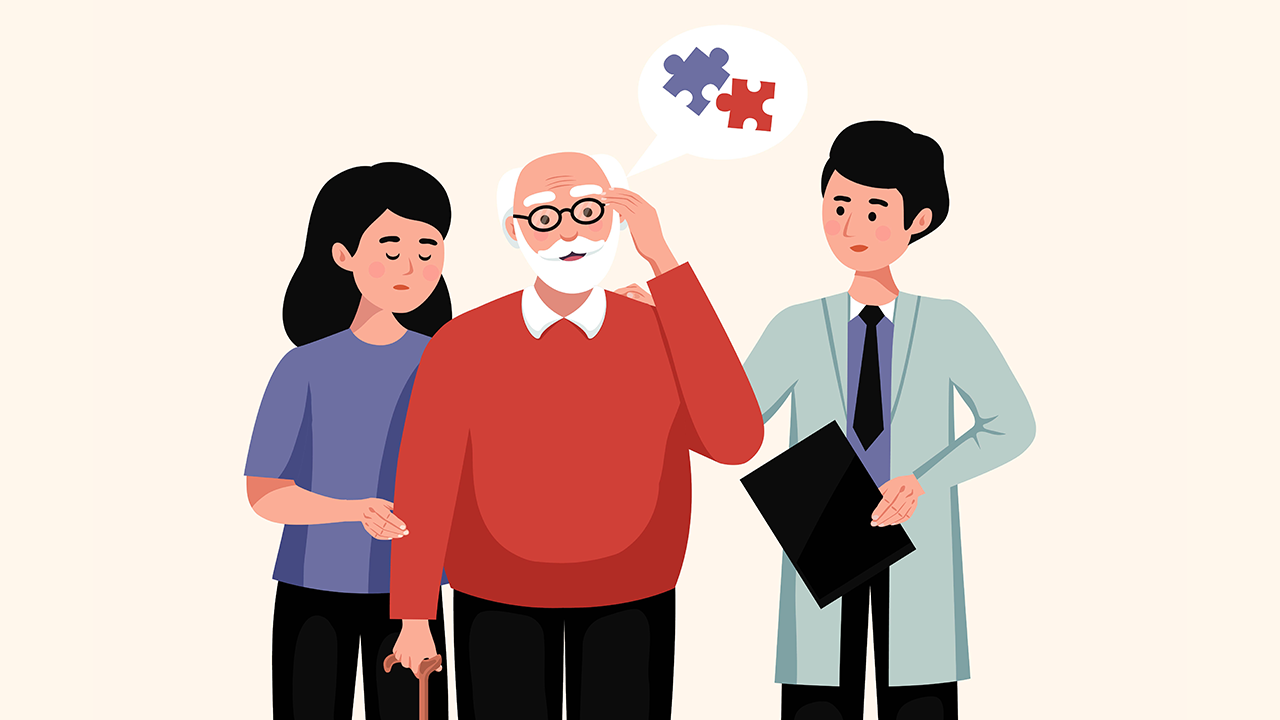
Depression and the Elderly: Are they getting the Help they need?
Depression is a condition that can affect people from all walks of life across the globe. With the COVID-19 pandemic persisting into it’s third year, the effects of social isolation and worsening health problems has taken a toll on the population at large. These, along with other factors, can create or worsen a depressive state. In fact, a recent study from Boston University found that depression among adults within the US has gone from 8.5% pre-pandemic to 27.8% in 2020. By 2021, this rate escalated to 32.8%.1
One group of people has an increased risk of developing depression: The elderly. Now that the pandemic has created a mental health crisis, it’s important to re-evaluate this portion of the population to ensure that they get proper therapy for their conditions. It is also vital to continue nurturing a culture that is not only aware of mental health needs, but removes any negative connotation attached to conditions like depression.
What do the Experts say about Elderly and Depression?
- According to the CDC, major depression can occur in 1-5% of geriatrics living in a community.4
- Older adults that require home healthcare or hospitalization have a higher incidence of major depression (13.5% and 11.5% respectively).4
- The National Institute on Aging has found depression to be common in people with Alzheimer’s and similar dementias. Depression can also be a possible early warning sign.4
- Depression is more likely in people who have limited function or other concurrent illnesses. 80% of the elderly population suffer at least one chronic condition, and 50% suffer from two or more.4
- Older adults may be misdiagnosed or undertreated, as healthcare providers do not recognize the signs and symptoms of depression right away. They sometimes view it as a natural reaction to illness, and this same misconception is often shared with the elderly patients themselves.4
Barriers to Mental Health Treatment
A study from Munira et al., examined the mental health needs and access to treatment for adults in the US, as well as other high-income countries. What they have found is that a mixture of Medicare and policy changes have made it easier for seniors to get access to mental health care more than in the past. However, gaining access to and affording such care is still a major issue. The number of psychiatric health providers is less than ideal, and it is made worse by the fact that not all will accept Medicare. Medicare also has limitations on inpatient hospitalizations for mental health conditions, as well as drug coverage.2
Other barriers are not just financial, but also social. Munira found that the highest rates of mental illness were reported among Hispanic/Latin adults of all ages. More so if they were either born in the US or have lived there for more than 10 years.2 The COVID-19 pandemic created a perfect storm of issues for this demographic as fears of social isolation, immigration changes, and loss of employment skyrocketed. The lowest rates were seen among older African American populations. However, the possible cause of this disparity can range from social stigma, lack of trust in the healthcare system, or systemic barriers in general.2
What can be done to help?
As stated by Munira, financial hardship poses a problem for the elderly when it comes to depression and mental healthcare. Other countries address this with a variety of approaches:2
- Canada, UK, Germany, and the Netherlands have no cost sharing for primary care visits.
- Mental Health Drug Treatments do not have copayments for the elderly in Canada, and France waives all copayments for mental health drugs in general.
- Canada also has free phone and text services for patient wellness and counseling.
- Australia subsidizes therapy sessions for psychologists and psychiatrists, along with other clinicians.
This approach of easing financial burdens for the elderly with mental disorders is further corroborated by the Boston University study mentioned earlier. They found that the advent of stimulus packages and other economic reliefs during the pandemic may have helped to prevent worsening depression outcomes in the US.1
The social disparities that arise when analyzing mental health among the elderly will require collaboration among different policy leaders. Depression and mental health are viewed differently among the various cultures and income levels in the US. It is important to not only understand how these different groups of people view depression, but there should be a continued effort to remove any stigmas attached to mental health disorders. People need to know that it is ok to speak out about how they feel.
Healthcare providers should also keep educated on the signs and symptoms of depression. As mentioned above, it can be easy to mistake these as something else. If drug therapy is required, doctors and clinicians need to also consider the other medications that the geriatric patient may be taking for their chronic conditions. Patients, too, should keep up to date with their therapies so harmful drug interactions can be avoided.3
Bibliography
- Ettman CK, Cohen GH, Abdalla SM, et al. Persistent depressive symptoms during COVID-19: A national, population-representative, Longitudinal Study of U.S. adults. The Lancet Regional Health – Americas. 2022;5:1-12. doi:10.1016/j.lana.2021.100091
- Munira Z. Gunja, Arnav Shah, and Reginald D. Williams II, Comparing Older Adults’ Mental Health Needs and Access to Treatment in the U.S. and Other High-Income Countries (Commonwealth Fund, Jan. 2022). https://doi.org/10.26099/crks-9c82
- Depression and older adults. National Institute on Aging. https://www.nia.nih.gov/health/depression-and-older-adults. Accessed April 8, 2022.
- Mental health of older adults. World Health Organization. https://www.who.int/news-room/fact-sheets/detail/mental-health-of-older-adults. Published December 12, 2017. Accessed April 8, 2022.
- Depression is not a normal part of growing older. Centers for Disease Control and Prevention. https://www.cdc.gov/aging/depression/index.html. Published January 6, 2021. Accessed April 8, 2022.


